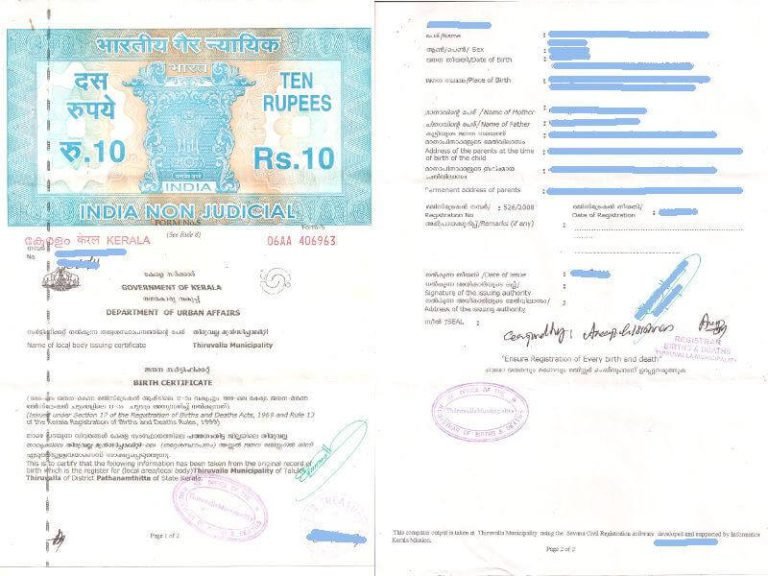GST Registration For Foreign Service Categories
Apply Online for GST Registration For Foreign Service Categories
GST registration for foreign service categories refers to the process of obtaining a Goods and Services Tax (GST) registration for businesses that are engaged in providing services from outside India to customers in India. Such businesses are required to register for GST if their annual turnover exceeds Rs. 20 lakhs or if they provide inter-state services, irrespective of their turnover.
Easy Process and Documentation
Required Paperwork
- Certificate of incorporation
- PAN card of the business
- Valid passport of the authorized signatory
- Address proof of the place of business in the country of origin
- Bank account statement or a canceled cheque of the business
- Proof of appointment of an authorized signatory in India
- Digital signature certificate (DSC) of the authorized signatory
- Details of the services provided by the business, including their nature and the mode of delivery
- Details of the bank account held by the business
- Power of attorney or letter of authorization, if applicable
Process, Service Charges, Time duration
- When you send us your paperwork, our experienced staff will review your paperwork with local government officials to determine the service’s cost, feasibility, and completion date. After a quote has been given, it remains fixed. Location affects project duration and cost. Send us your documents and specific requirements to get a price and turnaround estimate.
- On an average Procurement takes four to six weeks.
2000+ locations Served
Happy Clients 50000+
Averge Google Rating 4.9
India's Most Trusted Legal Documentation Portal
GST Registration For Non-Resident Taxable Individual (NRTP)
GST Registration For Foreigners
GST is an abbreviation for Goods and Services Tax. The Goods and Services Tax (GST) is an indirect tax that came into effect across India on July 1, 2017. GST has consolidated many indirect taxes into a single law, the GST Law. The Indian GST Law is a comprehensive, destination-based tax, multi-stage.
What does GST registration for foreigners?
Even though GST is a tax that is collected indirectly in India. But some transactions may also be open to non-residents, such as Non-Resident Indians, people with Overseas Citizenship of India, and foreign citizens. Some rules and important words about Non-Residents are listed below:
Foreigners who make taxable sales in India must register for GST, even if they don’t live there. India is becoming an economic hub, so many people who live outside of India want to start businesses there.
So, if a non-resident taxable person buys or sells goods or services, or both, he must apply for GST registration. So, a person who lives outside of India or a foreign business or organisation that sells food or services in India is considered a non-taxable person and must follow all of the rules in the Goods and Services Law Act. The non-resident taxable person should choose a representative in India to handle their GST compliance needs on their beha
What are the Benefits of getting GST registration?
- Unified taxation system: GST registration is a single platform that includes all other taxes, such as service tax registrations and VAT registrations. All indirect taxes are combined into a single GST registration.
- Making it easier to do business: GST handles taxes on goods and services, so taxes like Additional Custom Duty, the Central Sales Tax, Luxury Tax, Purchase Tax, and so on are no longer needed. This has helped taxpayers do their jobs better.
- Less tax to pay: With a higher annual turnover limit, the amount of tax to pay is less than with VAT. goods and services has also made a big difference in the tax base. This has lowered businesses’ overall tax bills and made them more compliant.
Significant Guidelines for Taxpayers Applying for Foreigners GST Registration
The name of the applicant must be written exactly as it is on the passport
- Form GST REG-09 should be used to apply for GST registration on the common portal at least 5 days before the business starts.
- If the business was started or incorporated outside of India, the application must include a unique number or a tax identification number (the number by which the respective government recognises the entity) or a Permanent account number (if needed).
- The application must be checked by EVC or signed correctly.
Non-Resident Taxable Individual (NRTP)
The GST Law says that a “non-resident taxable person” is anyone who occasionally buys or sells goods or services, or both, but does not have a permanent place of business or residence in India
GST Registration Procedure for Non-Resident Indians
Non-residents find India to be a very appealing market in which to invest and do business. If you are a non-resident and intend to start a business in Canada, you must register with GST. . In this blog, we will go over the process of GST registration for non-residents as well as the necessary forms.
Provisional Registration Updates
A non-resident taxable person can apply for registration by sending in FORM GST REG-09 and a copy of his valid passport that he has signed himself.
• The application for FORM GST REG-09 must be signed correctly or checked with an EVC. • The application must be turned in at least 5 days before business starts.
• If it is a foreign business entity (established or incorporated outside of India), the application for registration must include its tax identification number from that country (which is similar to our Permanent account number) and its Permanent account number (if it has one).
• An estimated advance tax deposit must also be sent in with the application. This person is called the “authorised signatory.”
Note: EVC stands for Electronic Verification Code. It is a new type of electronic verification that is based on the Aadhar card. All forms that are sent to the GST Portal must be signed or checked with an EVC.
Final Registration
Final Registration is done in the following ways:
• If an individual wants to sign up for GST, he will fill out the FORM GST REG–26 electronically. Within three months, each and every piece of information must be given.
• The final GST registration will be shown on FORM GST REG-06 if the information given is correct and complete.
• If the information given is wrong, the officer will use FORM GST REG-27 to send a “show-cause” notice.
• If the information given is wrong, the officer will use FORM GST REG-27 to send a “show-cause” notice. After giving the person a chance to be heard, the FORM GST REG-28 will be used to cancel the provisional registration.
• If the applicant’s answer is acceptable, the show cause notice can be cancelled by issuing an order using FORM GST REG-20.
• A non-registration resident’s application must be signed by a person who lives in India and has a valid PAN.
Note: EVC stands for Electronic Verification Code. It is a new type of electronic verification that is based on the Aadhar card. All forms that are sent to the GST Portal must be signed or checked with an EVC. Taxable Individuals Who Don’t Live in the U.S. Must Register So, any non-resident who fits the definition of a “Non-Resident Taxable Person” must get GST Registration. This is true whether the business does a single taxable transaction or many.
Non-Resident Taxable Individual Registration Requirement
Section 24 of the GST Act establishes a mandatory registration requirement for non-resident taxable persons with no threshold limit. As a result, Non-Resident Taxable Persons are not eligible for the minimum threshold limit of Rs. 20 lakh/ 10 lakh. As a result, any non-resident who meets the definition of a Non-Resident Taxable Person must obtain GST Registration, regardless of whether the business engages in a one-time transaction or frequent taxable transactions.
Documents required for GST registration
Proof of principal place of business
- For own business– Document proving ownership of the premises, such as the most recent tax bill, the municipal khata, or a copy of the electricity bill.
- For rented or leased premises: a copy of the valid rent or lease agreement, as well as any document supporting the lessor’s ownership of the premises, such as a property tax receipt, a municipal khata copy, or an electricity bill.
- For premises not covered above, a copy of the consent letter along with a document proving the consenter’s ownership of the premises, such as a municipal khata or a copy of the electricity bill. The same documents can be uploaded even for shared properties.
Identity Verification
- It is required to file a soft copy of the non-resident taxable person’s passport along with the VISA details. In the case of a business entity that is incorporated or established outside of India, the application for registration should be submitted along with the tax identification No or the unique no that is used by the Govt of that country to identify the entity, or the Permanent account number if it is available.
- In the case of a company/society/LLC/FCNR, etc., a person with the authorization certificate who holds the attorney power.
- A scanned copy of the company’s incorporation certificate is registered outside India or in the country.
- A scanned copy of the foreign country’s licence, if one is available.
- If available, a scanned copy of the clearance certificate issued by the Government of India.
Proof of Bank Account
The opening section of the bank passbook in the name of the business that includes the Account number, name of the account holder, MICR, IFSC code, as well as branch details, copies of the first page of the bank passbook or one page of the bank statement,
Procedure for a Non-Resident Taxable Person to Register
- Every person who meets the criterion of a Non-Resident Taxable Person must register for GST at least five days before they begin commencement business.
- In order to register for Goods and Services Tax, Non-Resident Taxable Individual will need to furnish its home country’s Tax ID or Unique Number of its.
- NRTP need not to have a PAN of India and it can use its valid passport instead.
- Application for registration need not be like normal applicants. Application can be submitted in simplified form ie REG-09.
- Further in the case of a high-sea sale; as per the GST Law provisions every person who supplies from the territorial waters of India shall have to obtain registration in the coastal state or Union territory nearest to appropriate baseline.
- For example, if a high-sea sale occurs on the Haldia beach, the Goods and services tax registration must be done in West Bengal.
- In the case of Non-Resident Taxable Person (NRTP) GST registration, the Common Portal generates a temporary reference No online at first. The objective of this temporary no is to allow him to deposit tax in his electronic cash ledger ahead of time, after which an acknowledgment will be issued.
- Non-filling of electricity bill receipt is not a ground of rejection of GST Registration application
Goods and services tax deposit for non-resident taxpayers
What is a GST deposit for Non-resident taxpayers?
Under the GST, non-resident taxable people and casual taxable persons must pay a registration deposit of a specific amount.
The GST registration deposit will be equal to the anticipated tax liability during the registration’s validity period. If a non-resident taxable person requests an extension, he must pay the tax in advance based on the anticipated tax burden for the extended period.
An application reference No will be generated after the GST registrations are filed, and this number will be used to pay the advance tax.
The taxpayer’s electronic cash ledger is credited when tax is paid, and then certificate is issued.
GST Advance Tax Payment by a Non-Resident Taxable Person
GST Advance Tax Payment by a Non-Resident Taxable Person Non-resident taxable persons are needed to pay an advance GST deposit under the GST Provisions. This advance GST tax payment must be in an amount equal to such person’s expected tax due for the term for which registration is sought.
The GST registration deposit will be equal to the anticipated tax liability during the registration’s validity period. If a non-resident taxable person requests an extension, he must pay the tax in advance based on the anticipated tax burden for the extended period.
An application reference number will be generated after the GST registrations are filed, and this number will be used to pay the advance tax.
The taxpayer’s electronic cash ledger is credited when tax is paid, and then certificate is issued.
• Any tax that is overpaid will be refunded to the NRTP at the end of the GST registration period, upon filing of final returns.
• The non-resident taxable person can prolong the GST registration period, which is initially applied by the NRTP,. For the same, An application in the form GST REG-11 must be submitted online on the GST Common Portal for this purpose.
Other Business Transactions
Apart from Non-Resident Taxable Individual (NRTP), GST regulations apply to a variety of other transactions involving non-residents, which including:
Renting of Immovable Property in India For example, if an Non-Resident Indian’s owns an immovable property in India that is used for business reasons or commercial then GST regulations will apply to that transaction.
• Non-residents provide consulting services to Indian residents. GST may be imposed to such transactions under the import rule & regulations.
• GST laws may also apply to numerous other transactions involving Non-Resident Indian’s, PIOs, Expatriates, OCIs, Foreign Companies, & other Non-Residents, depending on the facts.
NRIs, Expats, as Well as other Non-Residents may find the above material useful when they have questions about GST provisions in India, such as:
• What are the GST law for Non – resident indians, OCIs, Foreign Businesses, and Foreign Citizens?
• I am a non-resident alien In India, I own an immovable property that I rent out. Is it true that the GST law applies to such a transaction?
• What are the GST rules & processes for foreign Company & non-residents ?
• I am a non-resident Indian (NRI), employee of a foreign Company or Expatriate. In India, I’d want to do some business transactions. Is the GST applicable? What are the rules and regulations in relation to that?
• Does GST deal with non, such as foreign corporations NRIs and OCIs?
• I work for a Foreigner company situated out of India. I provide consulting services to the organisation. Is GST applicable, and if so, what are the provisions?
Disclaimer: The content of this post isn’t considered to be professional or legal advice, We aren’t responsible for any damages arising from your access to the location content & must not be relied on or used as a substitute for legal advice from a lawyer professional in your jurisdiction. We are among India’s big digital compliance services platform which committed to helping people have started & developed their businesses. We had started with the goal of creating it easier for start-ups to start out their business. Our main aim is to assist the businessman with applicable laws & regulations compliance and providing support at each & every level to make sure the business stays compliant and growing continuously.













